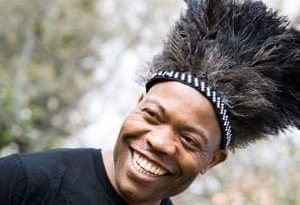Sweden based Luckson “Manluckerz” Chikutu has praised Zimbabwe’s rich culture and said showcasing it could be rewarding for artists scattered around the world.
In an interview with Spiked Online Media, Manluckerz encouraged Zimbabweans to be proud of their culture and not to be ashamed of showcasing it.
“I am an original Karanga from Gutu in Masvingo. When I came to Sweden, I told myself that I should not be a copycat of foreign cultures but rather an ambassador of my own cultural values and activities. I even brought traditional regalia that I often adorn when performing to crowds comprising people from various parts of the world. Even the instruments I use are Zimbabwean. These include the mbira, hosho, magavhu and drums. Through music that is rich in culture, I am able to look after myself, family and relatives back home through diaspora remittances,” Manluckerz said.
In a recent interview with ShowBiz correspondent, Tsists Ndabambi, Manlukerz revealed that he has managed to assemble an outfit, Zimbabwe Traditional Unity that has band members from different countries.
“I can tell you that the country has a potential of making a lot of money because our culture is unique and adored by many beyond our borders. I see it whenever we perform here people love it,” he said.
According to him, there is need to monetise the sector as it contributes to the Gross Domestic Product (GDP) in the country.
The musician was quoted as saying that just like Jamaica and other African countries like South Africa, Zimbabwe’s arts sector can be a billion dollar project.
“Our culture is appreciated all over. I will give an example of how people here in Sweden adore you if you wear our African and cultural attires. That explains why I put on the cultural clothes when I go on stage,” he said.
The musician gave an example of how Thomas Mapfumo is respected with his traditional beats.
“Just a drum and Mbira makes our traditional music very rich. So with all that what stops us from taking our culture forward as a nation. I am happy that people in Zimbabwe do understand what our culture is,” he added.
